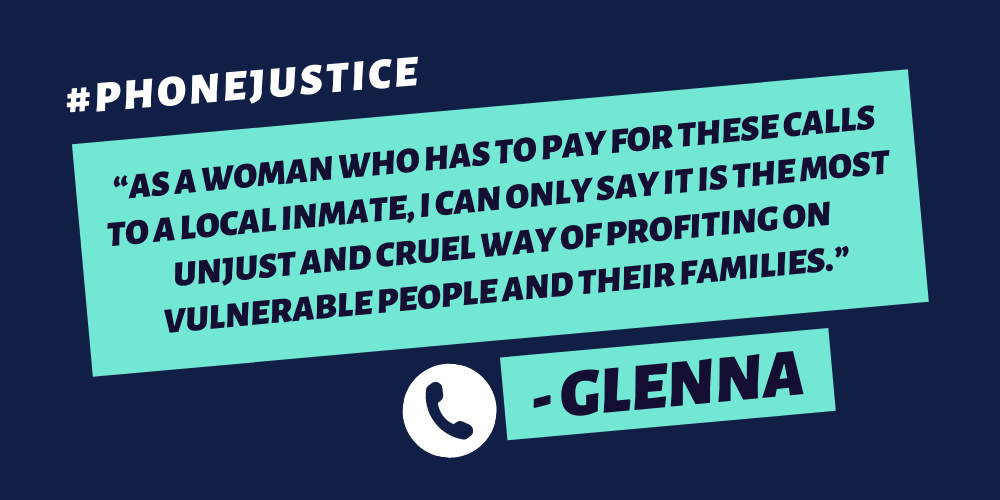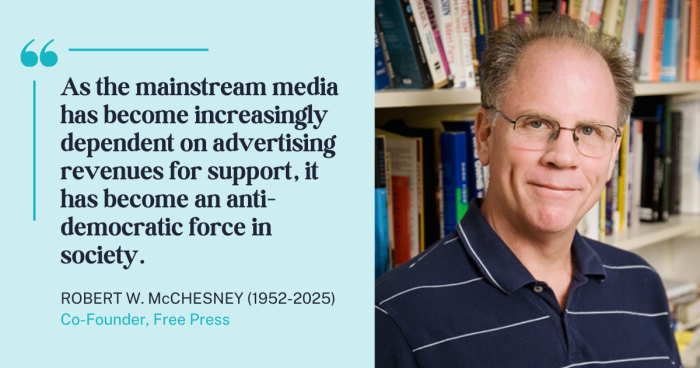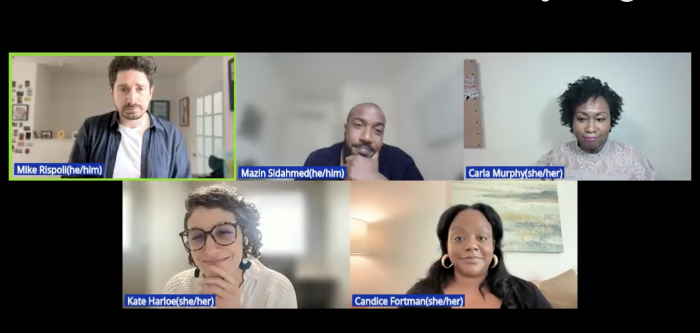People Who Are Incarcerated Need Relief

Yesterday, Free Press Action joined our allies at Color Of Change, MediaJustice, United Church of Christ's media-justice ministry and Worth Rises in delivering nearly 80,000 petition signatures urging Congress to pass phone-justice legislation.
The virtual delivery brought together advocates and people who have been directly impacted by the high cost of prison-phone calls. Participants included Ulandis Forte, the grandson of phone-justice champion Mrs. Martha Wright-Reed, and prison phone-justice advocate Wandjell Reneice Browning, as well as staffers from the offices of Sen. Tammy Duckworth and Rep. Bobby Rush, both Democratic lawmakers from Illinois.
The high cost of prison-phone calls is a cruel and unnecessary barrier that prevents incarcerated people from accessing legal services and connecting with their loved ones.
The coronavirus pandemic has been incredibly dangerous for incarcerated people, who have limited access to basic hygiene products, largely inadequate health-care services and no way to socially distance. While advocates across the country are doing critical work to secure the release of incarcerated people, we must ensure that families can get and stay connected during and after the pandemic.
With in-person visitation suspended in most prisons, jails and detention centers, phone calls have largely become the only way for incarcerated people to stay connected with the outside world. But the cost of these calls is outrageous — a local 15-minute phone call can run as high as $25 in some facilities.
Many people struggled to afford these rates before the COVID-19 pandemic hit: 1 in 3 families went into debt while trying to stay in touch with loved ones who are incarcerated. But with unprecedented jobless rates spurred by the economic crisis, these costs have become even more unworkable for families across the country.
Incarcerated people, their loved ones and 2.7-million children with an incarcerated parent are now suffering in isolation. Meanwhile, the $1.2-billion prison-phone industry, which Securus and GTL dominate, continues to rake in profits, with some state and county prison systems taking a cut.
Free Press Action and our allies have been working for years to pass phone-justice rules or legislation that would set a lower cap on the high cost of prison-phone calls. In fact, former FCC Commissioner Mignon Clyburn spent her career fighting for this kind of relief, and even implemented a rule that would have capped the cost of local and in-state calls to and from jails, prisons and detention centers — only to have Trump’s FCC chairman, Ajit Pai, refuse to defend an important part of the rule after it was challenged in court by the prison-phone industry as soon as Pai stepped into power.
Now, the best avenue for capping the cost of these calls is through Congress: In 2019, Sen. Tammy Duckworth introduced the Martha Wright-Reed Just and Reasonable Communications Act (S. 1764). Shortly after, Rep. Bobby Rush introduced a companion bill (H.R. 6389) in the House.
Both bills are named in honor of Martha Wright-Reed — a champion in the fight for prison-phone justice — and would immediately drive down rates to no more than 4 to 5 cents per minute, end kickbacks to correctional administrators on telecom contracts and restore the FCC’s authority to regulate all prison and jail phone-call rates. The legislation carries forward Mrs. Wright-Reed’s decades-long fight for affordable prison-phone rates: Phone calls were the only way she could stay in touch with the grandson she raised and loved.
Right now, Congress has a unique opportunity to adopt the Martha Wright-Reed bills as part of its next COVID-19 relief package. The HEROES Act, which the House passed in May, includes provisions of the phone-justice bills that Duckworth and Rush introduced. Unfortunately, it’s unclear when Congress will continue negotiations about the HEROES Act or another stimulus package.
But when the time comes, we will be calling on lawmakers to stand up for vulnerable communities and make prison-phone calls more affordable for families trying to stay connected.





